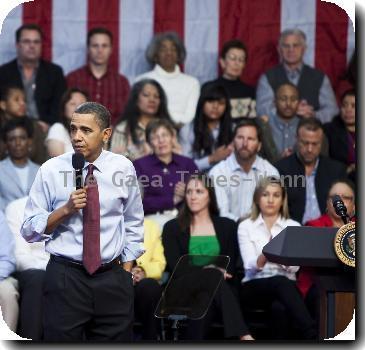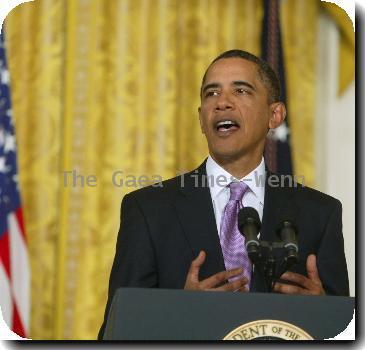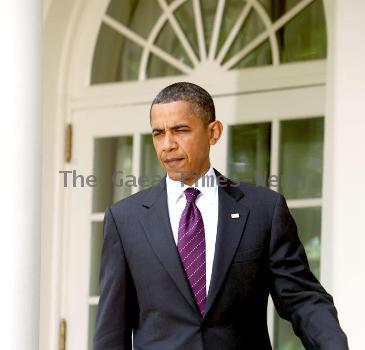Leaked Afghan war documents could damage US interests, endanger lives of cooperative locals
By Kimberly Dozier, APTuesday, July 27, 2010
US braces for blowback over Afghan war disclosures
WASHINGTON — Operatives inside Afghanistan and Pakistan who have worked for the U.S. against the Taliban or al-Qaida may be at risk following the disclosure of thousands of once-secret U.S. military documents, former and current officials said.
As the Obama administration scrambles to repair any political damage to the war effort in Congress and among the American public by the WikiLeaks revelations, there are also growing concerns that some U.S. allies abroad may ask whether they can trust America to keep secrets, officials said.
Speaking in the Rose Garden Tuesday, President Barack Obama said he was concerned about the massive leak of sensitive documents about the Afghanistan war, but that the papers did not reveal any concerns that were not already part of the debate.
In his first public comments on the matter, Obama said the disclosure of classified information from the battlefield “could potentially jeopardize individuals or operations.”
The president spoke in the Rose Garden following a meeting with House and Senate leaders of both parties.
In Baghdad, Adm. Mike Mullen, chairman of the Joint Chiefs of Staff, told reporters he was “appalled” by the leak. He said “there is a real potential threat there to put American lives at risk.”
The Army is leading the Pentagon’s inquiry into the source of the leak. A federal law enforcement official said the Justice Department is assisting in the probe. The law enforcement official who spoke on condition of anonymity about the ongoing probe says the Justice Department does not have its own separate investigation into the leak, but rather is acting in a support role to the Pentagon.
Col. Dave Lapan said the Army criminal probe launched Tuesday is aimed at finding the source of secret documents published Sunday by WikiLeaks, an online site. The Army’s criminal investigative division led the investigation into Bradley Manning, an Army intelligence specialist charged with leaking other material to WikiLeaks. Lapan said it’s not clear whether the latest material came from Manning or someone else.
The WikiLeaks material, which ranges from files documenting Afghan civilian deaths to evidence of U.S.-Pakistani distrust, could reinforce war opponents in Congress who aim to rein in the war effort. But the leaks are not expected to dim the passage of a looming $60 billion war funding bill.
Congress has backed the war so far, and an early test of that continued support came when the Senate Foreign Relations Committee, led by Sen. John Kerry, D-Mass., opened a hearing on the Afghan war.
At the hearing, few members mentioned the leak of documents but several expressed frustration at the lack of progress in improving Afghan governance and in drawing more ordinary Afghans away from the Taliban. In a tone of exasperation, Kerry questioned why the Taliban, with fewer resources, is able to field fighters who are more committed than Afghan soldiers.
“What’s going on here?” Kerry asked.
In his only reference to the leak, Kerry called the new material “overhyped,” said that it was released in violation of the law and that it largely involves raw intelligence reports from the field. He said he thought the document release could jeopardize the U.S. mission there.
Despite strong opposition among liberals who see Afghanistan as an unwinnable quagmire, House Democrats must either approve the funding bill before leaving at the end of this week for a six-week vacation, or commit political suicide by leaving troops in the lurch in war zones overseas.
Sen. Kit Bond, R-Mo., the ranking Republican on the Senate Intelligence Committee, said Tuesday he worries that the leaks won’t stop “until we see someone in an orange jump suit.”
Pentagon spokesman Geoff Morrell said the military doesn’t know who was behind the leaks, although it has launched “a very robust investigation.”
Morrell complained that too much was being made of the documents. Referring to files that detailed American suspicions that some Pakistani intelligence officials were aiding insurgents, Morrell insisted those concerns have abated in recent years and the relationship has improved.
The disclosures, he said, are “clearly out of step with where this relationship is now, and has been heading for some time.”
Morrell was interviewed on CBS’s “The Early Show” and Bond appeared on NBC’s “Today” show.
Even as the administration dismissed the WikiLeaks material as outdated, U.S. military and intelligence analysts were caught up in a speed-reading battle to limit the damage contained in the once-secret files now scattered across the Internet.
The officials are concerned about the impact on the military’s human intelligence network built up over the past eight years inside Afghanistan and Pakistan. Such figures range from Afghan village elders who have worked behind the scenes with U.S. troops to militants working as double agents.
Col. Dave Lapan, a Defense Department spokesman, said the military may need weeks to review all the records to determine “the potential damage to the lives of our service members and coalition partners.”
WikiLeaks said it has behaved responsibly, even withholding some 15,000 records that are believed to include names of specific Afghans or Pakistanis who helped U.S. troops on the ground.
But former CIA director Michael Hayden denounced the leak Monday as a gift to America’s enemies.
“If I had gotten this trove on the Taliban or al-Qaida, I would have called it priceless,” he said. “I would love to know what al-Qaida or the Taliban was thinking about a specific subject in 2007, for instance, because I could say they got that right and they got that wrong.”
Hayden predicted the Taliban would take anything that described a U.S. strike and the intelligence behind it “and figure out who was in the room when that particular operation, say in 2008, was planned, and in whose home.” Then the militants would probably punish the traitor who’d worked with the Americans, he said.
Another casualty of the disclosures may be American efforts to forge cooperation with Pakistan’s secretive intelligence agency, the Inter-Services Intelligence.
Multiple U.S. military cables posted by WikiLeaks complain about ISI complicity with the Taliban. And they also tell the Pakistanis “how much we know about them,” said Robert Riegle, a former senior intelligence officer who now runs Mission Concepts Inc., a private intelligence firm.
“You’re not going to see any cooperation,” he said. “People are going to freeze.”
The raw data released Sunday may also prove useful in a wider way to America’s “frenemies” — the intelligence services of countries like China and Russia, who have the resources to process and make sense of such vast vaults of data, said Ellen McCarthy, former intelligence officer and president of the Intelligence and National Security Alliance.
Former CIA chief Hayden added: “If I’m head of the Russian intelligence, I’m getting my best English speakers and saying: ‘Read every document, and I want you to tell me, how good are these guys? What are their approaches, their strengths, their weaknesses and their blind spots?’”
Associated Press writer Pete Yost contributed to this report.
Tags: Afghanistan, Asia, Barack Obama, Central Asia, Computing And Information Technology, Criminal Investigations, Internet Technology, John Kerry, Law Enforcement, Military Intelligence, Military Legal Affairs, North America, Pakistan, South Asia, United States, Washington, Wikileaks





